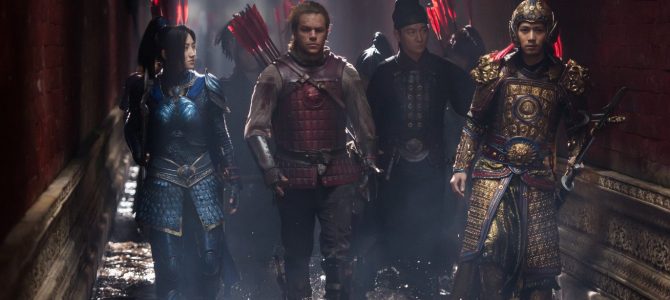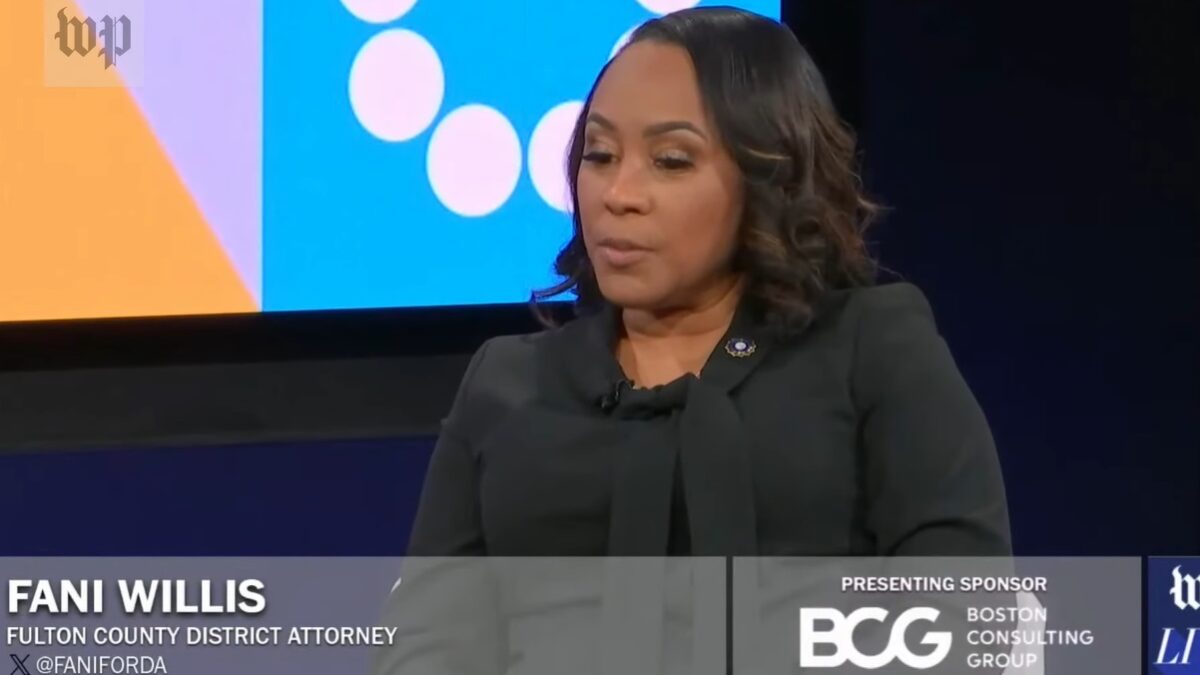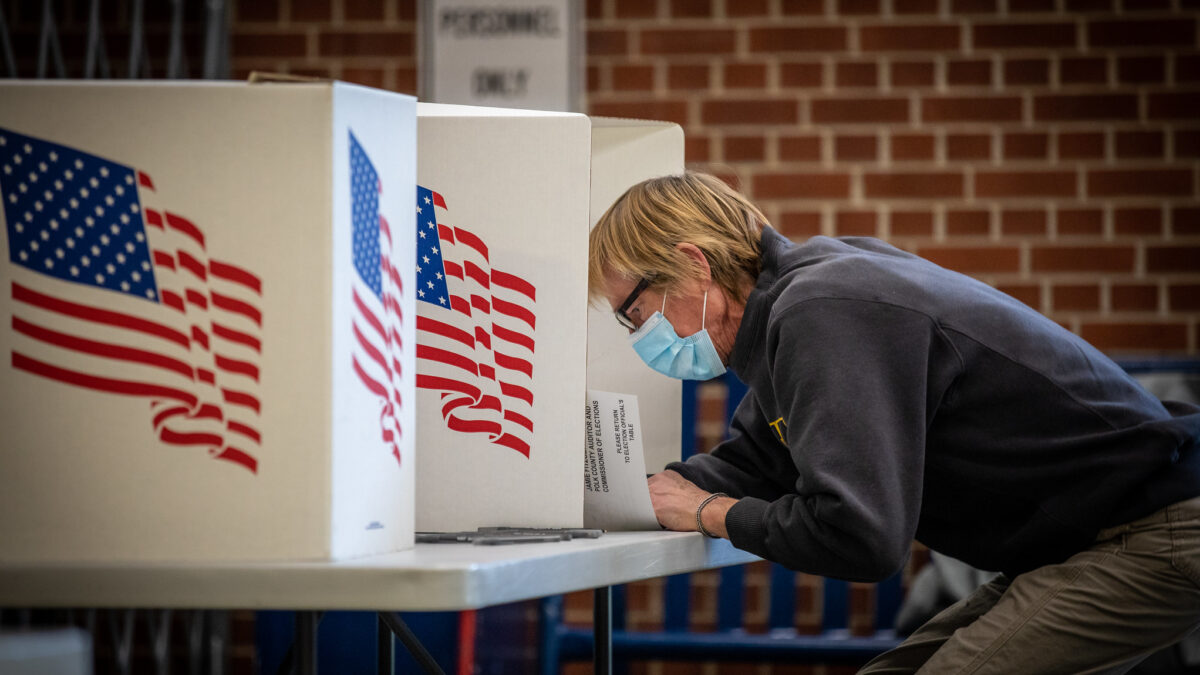
Once upon a time, a group of people gathered for the purpose of making the perfect movie. And by “perfect,” they meant one that would make them lots of money. They made an action movie, because those make the most money. They decided to pit the heroes against monsters so as not to offend anyone. They made it PG-13 to maximize profits. It also needed an A-list actor because movies with big names make lots of money. And finally, they set the movie in China because China is the second largest film market in the world.
The result of their labors is “The Great Wall,” a movie that embodies the paint-by-number approach to filmmaking.
In “The Great Wall,” Matt Damon plays William, a medieval English mercenary, who walks all the way to China looking for the legendary black powder that can turn air into fire. What he finds instead is a wall—a really big wall—defended by a fantastical army dressed in the colors of the rainbow. Red archers and black infantrymen do their thing while warrior women dressed in startling blue dive-bomb their enemies with the help of bungee cords.
Bland Script, But Beautiful Imagery
What are the Chinese so afraid of? What enemy requires such a pile of stone and a weapon-wielding flying circus to keep it out? Alien-dragon-zombies. Or something like that. Hordes of green monsters have besieged the Chinese for centuries, and Matt Damon shows up in the nick of time to help a beautiful Chinese general (Tian Jing) defeat them once and for all. Along the way, he must learn to trust people.
The script holds no surprises. Each of the characters does exactly what you’d expect them to, and the movie becomes a pastiche of scenes we’ve seen in other movies. Matt Damon and Willem Dafoe can deliver top-notch performances, but they can’t do much with this script. Dafoe is totally wasted in this movie, and Damon utters all his wooden lines in a painful accent that’s equal parts New England and mock-medieval.
The action scenes of the movie are much more entertaining than the storyline, but even these feel derivative. The battles on the wall feel too much like Peter Jackson’s Battle of Helm’s Deep from “The Two Towers,” and the alien-zombie-dragons (the Chinese call them Tao Tei) are too reminiscent of the mimics from 2014’s “Edge of Tomorrow.” Even with so many unoriginal elements, director Zhang Yimou provides viewers with some beautiful imagery. Zhang directed the opening and closing ceremonies for Beijing’s Summer Olympics. If you didn’t get enough drum pounding and people walking on walls in 2008, then you might genuinely enjoy seeing it all again in “The Great Wall.”
Is ‘The Great Wall’ Guilty Of Whitewashing?
What of the White Elephant on the wall? What’s Matt Damon doing in this movie in the first place? Last year, howls of injustice reverberated through social media because Damon was slated to star in a movie set in medieval China. Everyone agreed that this was another instance of whitewashing—Hollywood had taken a part that belonged to a person of color and had given it to a white actor. Using a big-name star for the role rather than finding an authentic nine-hundred-year-old Chinese actor showed that studios care about profits rather than justice.
The film, however, has closer ties to Beijing than Hollywood, which complicates the whitewashing narrative. The movie was mostly financed with Chinese money, and Zhang Yimou defended the choice of casting Matt Damon. But even if this was a clear case of unjust whitewashing, should we be surprised that the Wanda Group, which has a cozy relationship with China’s Communist Party, prioritizes profits above liberal ideas about equality?
The Film Is A Perfect Metaphor For Film Studio Greed
The irony is that the movie’s rather obvious moral is that greed is bad. Damon’s William represents all of Western Civilization, while Tian Jing’s Commander Lin represents all of China. The mercenary William tells Lin that the two of them are alike in many ways. Lin disagrees, telling him, “In this army we fight for more than food and money.” Throughout the entire movie, we see William wrestle with his desire for money, and there’s no real subtlety in the movie’s implication that the West only desires money. Lin teaches William that fighting for the country is honorable, and Lin’s continuous moralizing sounds a lot like a communist-party declaration.
By the end of the movie, William has seen the error of his ways, and he regrets fighting for greed because now he’s found something worth fighting for. (It’s worth noting that in the trailer William says he regrets fighting for “greed and gods,” but in the final cut, the comment about gods has been edited out. Now it’s just greed. I wonder if this denunciation of religion remains in the Chinese version of the film as a nod to the Communist Party.) William, and by extension the West, must have a change of heart and become more Chinese. Only then can Lin, and all of China with her, say, “We are more similar than I thought.”
This movie is a beautiful metaphor for the relationship between American and Chinese film studios. They are more similar than not. Despite all the moralizing, both are after the same thing—profits. The Chinese film industry moralizes about the dangers of Western Civilization and greed, and the American film industry moralizes about the dangers of Western Civilization and whitewashing. Both pay lip service to their respective country’s reigning ideologies, but both really just want to make a few hundred-million dollars off of a film.









